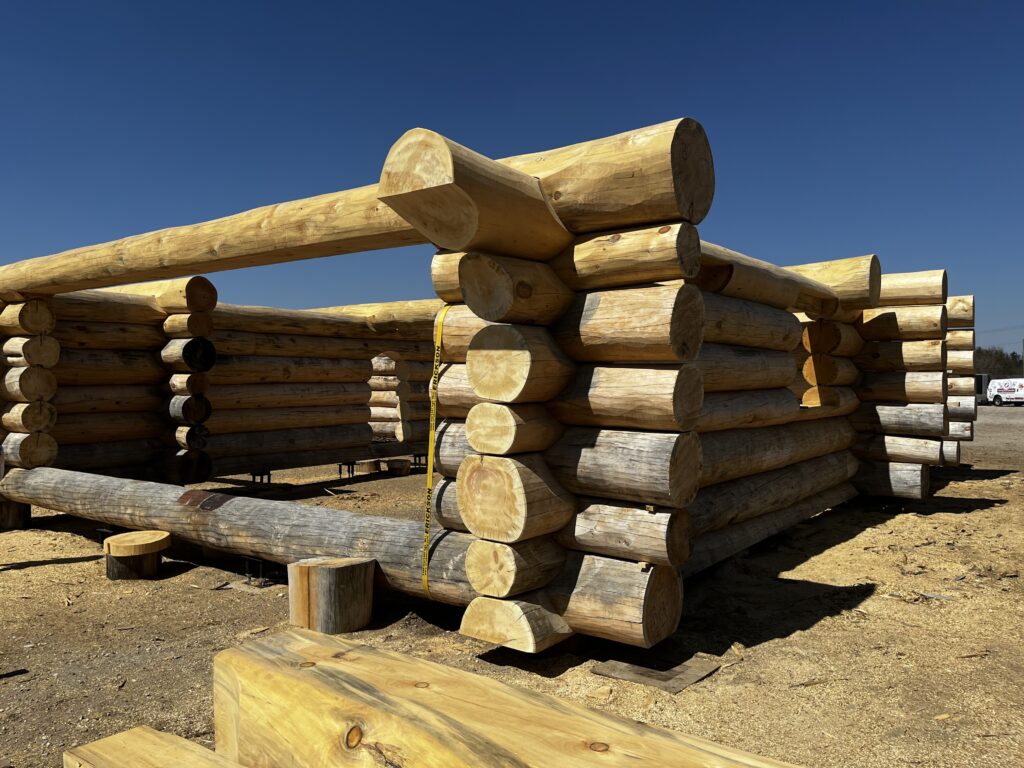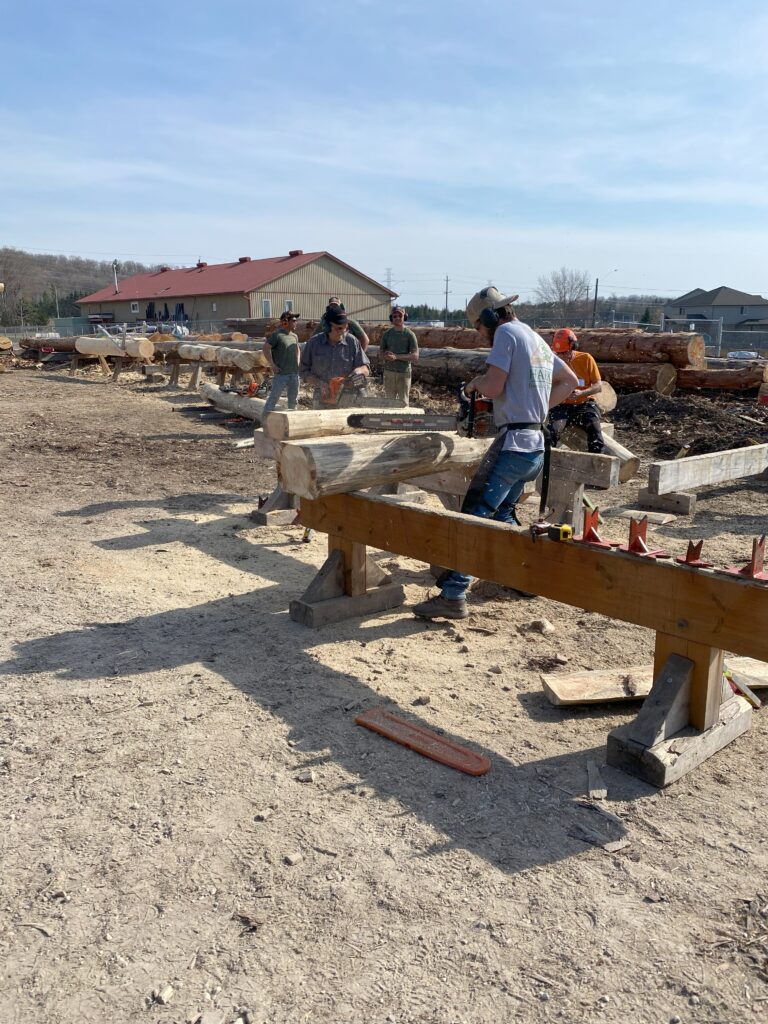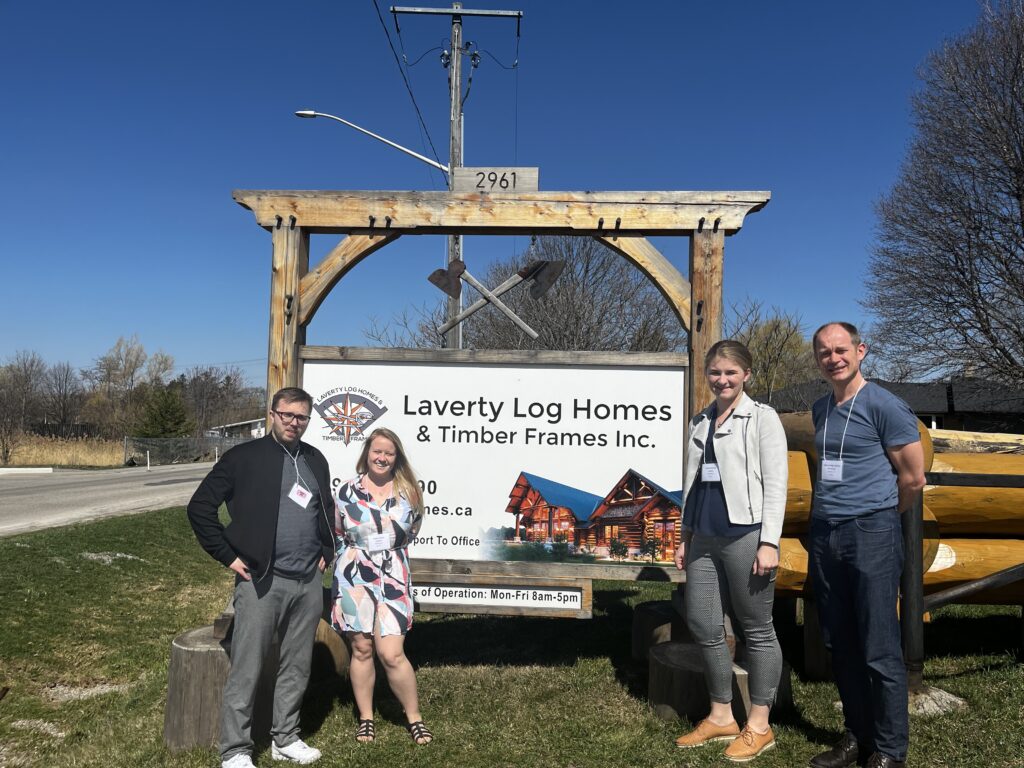Woodhouse Estonia and Estonian log house manufacturers visited the International Log Building Conference in Canada on 12–17 April. The construction of a UNESCO-heritage smoke sauna and the introduction of sauna culture caused quite a stir across the ocean.
An annual event for log house builders, the International Log Building Conference, is organized by our Canadian colleagues year after year, bringing together log building enthusiasts from around the world and members of the ILBA (International Log Builders’ Association) network. After the long COVID period when it was not possible to organize the conference, it was decided to relaunch the series of events this year. The 49th conference was held in Waterloo, Canada. Log building specialists from Canada, USA, Switzerland, and France assembled. The Estonian manufacturers of handcrafted log houses Hobbiton, Tender Ehitus, and Woodhouse Estonia were also present.
The conference was focussed on sharing different experiences and new trends. Woodhouse Estonia also had the opportunity to introduce the Estonian wooden house sector and Andrus Prangli (Hobbiton OÜ) shared their experience of building a smoke sauna by using traditional hand tools. It turned out that although the final product, a handcrafted log house, is similar among the builders around the world, the technology (e.g. the construction of notches) and the techniques are relatively different. In Canada and America, for example, buildings made of round beams and saddle notches are more common, while in our region, log houses are more commonly built with square beams and Scandinavian notches. Discussing the techniques with distant colleagues, it became clear that one of the differences in the corner making techniques lies in whether wind locks are used. The same goes for the sauna culture – going to the sauna, let alone a smoke sauna, is not a weekly tradition in America as it is here in Estonia. Saunas are known about, but actually used relatively little. This is probably one of the reasons why the topic of smoke saunas, introduced by Andrus Prangli, was one of the main topics of discussion at the conference.

In addition to presentations, practical workshops were also organized. The emphasis was mainly on the durability (quality) of log houses and on avoiding damage. The various competitions organised created further excitement – the traditional axe throwing contest and the corner notch making contest.
Contest of making corner notches culminated with a surprise from Estonians – Woodhouse Estonia gave the winner of the competition a ticket to the annual Estonian competition for Handcrafted Log House Builders. The winner of the competition was Holger Wurzbacher from Laverty Log Homes, who was visibly delighted with his win and surprise prize. The young man will be travelling to Hiiumaa, Estonia, in early June, where our local log house builders’ championship will be held.

One of the purposes of the participation of Woodhouse Estonia in the conference was to introduce the international log building conference to be organised in 2024 in Räpina as part of the European Capital of Culture Tartu 2024 programme. Canada provided important input for further activities in the field of log building and for the planning of the international log building conference.

Estonia and our timber and log house construction undoubtedly attracted a lot of attention at the conference and we hope to see the specialists and those interested participating in the conference also in Estonia soon.
The International Log Builders’ Association is a global network, established in 1974, dedicated to promoting the construction of handcrafted and milled log buildings and bringing together professionals in the field. Among other things, it develops training programmes and teaching materials related to log construction and has established a log construction standard. The administration of the association is based in Canada, but its membership includes over 170 organisations from twenty countries. Estonia and Hobbiton OÜ, manufacturer of Estonian handcrafted log houses, are among the members.
Participating at the ILBA conference was partially supported by the Estonian Wooden Houses Export Cluster project, which is financed by the EAS clusters measure, which is supported by the European Regional Development Fund.

